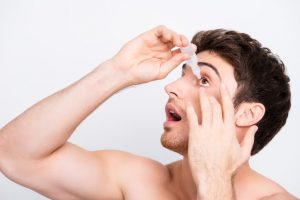 The prevalence of mental health concerns, including depression and anxiety, have been on the rise over the last several decades. These conditions contribute to the overall strain on healthcare systems around the world as they are so, they tend to have a chronic prognosis, and because they occur from a very young age.
The prevalence of mental health concerns, including depression and anxiety, have been on the rise over the last several decades. These conditions contribute to the overall strain on healthcare systems around the world as they are so, they tend to have a chronic prognosis, and because they occur from a very young age.
Mental health conditions also have adverse effects on quality of life in those who suffer from them. Therefore, understanding the mechanisms that cause them and linking the conditions to other medical issues which may help to identify them are of the utmost importance to relieve some of the strain on healthcare systems and to improve the quality of life of patients with mental health diseases.
Advertisement
With these influences in mind, a group of researchers sought to systematically examine the relationship between depression and major eye conditions, as research is lacking in this area. They specifically examined the association between depression and dry eye syndrome, age-related macular degeneration, glaucoma, diabetic retinopathy, nuclear cataract, cortical cataract, posterior subcapsular cataract, and lower best corrected visual acuity.
The study was population-based and performed in Beijing in both rural and urban settings. There were 3,468 participants, ranging in age from 50 to 93 years old. They underwent extensive eye examinations and completed interviews to determine whether depression was present based on a Chinese depression scale and Zung’s self-rated depression scale. The researchers also gathered information on socioeconomic background.
Depression Linked to Specific Eye Shape
Of the total participants, 66 showed signs of depression consistent with a depression score greater than 44, which is how the researchers defined a diagnosis in this scenario. This was of 80 potential depression symptoms, five of which showed signs of depression with a depression score greater than 59. After analyzing the data, the researchers found that a higher depression score was generally associated with a greater number of days of dry eye feeling and shorter corneal curvature radius.
These results were true after adjusting the results for age, gender, region of habitation, body mass index, cognitive function score, life quality score, and blood concentration of triglycerides. The researchers did not find any similar connections between depression or age-related macular degeneration, glaucoma, diabetic retinopathy, nuclear cataract, cortical cataract, and posterior subcapsular cataract. There was a marginally significant relationship between depression and lower best corrected visual acuity.
Advertisement
Overall, the most significant finding was the association between a higher self-rated depression score and days of feeling dry eye syndrome. This confirms findings that have previously linked the two conditions. One limitation of this study to note is that depression was diagnosed based on self-reported data, as well as a one-time interview with a psychological professional. Mental health disorders are complex health issues and often require long periods of time to confirm diagnosis.
These findings do, however, narrow the list of ocular conditions which may affect or be affected by depression and can allow future research to focus on uncovering the nature of the association between depression and dry eye syndrome.
Also read:
- Top foods to boost your eyesight and vision
- Yoga for eyes: Easy eye yoga poses to improve vision
- How to treat catatonic depression? Symptoms and causes
